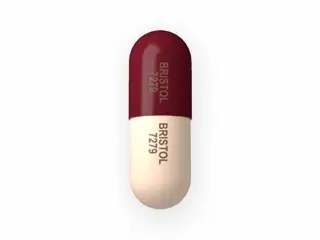Antibacterial



Effective antibacterial products to protect your health and fight infections. Shop trusted medications and hygiene solutions designed for fast, reliable results.
Antibacterial medications play a crucial role in fighting bacterial infections. These medicines work by killing bacteria or stopping their growth. They are used to treat many illnesses, from simple skin infections to complex internal infections. In this review, we will discuss some popular antibacterial drugs available in online pharmacies. These include Aralen, Asacol, Bactrim, Ceftin, Furadantin, Rulide, Suprax, Tinidazole, Trimox, and Vibramycin.
Aralen is a well-known antibacterial used mainly for malaria prevention and treatment. It belongs to the class of drugs called antimalarials but also shows antibacterial effects against some bacteria. Aralen is effective, but may cause side effects like nausea, vomiting, and headaches. It should be taken with care, especially during long-term use.
Asacol is more specialized. It contains mesalamine and is mainly used to treat inflammation in the colon caused by ulcerative colitis. Although not a classic antibacterial, it helps reduce inflammation and prevent bacterial complications in the gut. Many patients tolerate Asacol well, but some may experience mild side effects like stomach pain or headache.
Bactrim is a very popular combination antibiotic. It contains sulfamethoxazole and trimethoprim. This drug works well against a broad range of bacterial infections, including urinary tract infections, respiratory infections, and some types of diarrhea. Bactrim is effective and affordable, but can cause side effects such as rash, nausea, or allergic reactions. It should be avoided in people with certain blood disorders or allergies.
Ceftin is a cephalosporin antibiotic. It is useful against respiratory infections, skin infections, and ear infections. Ceftin is known for its effectiveness and relatively mild side effects profile. Common side effects include diarrhea, nausea, and mild allergic reactions. Overall, Ceftin remains a trusted drug in its category.
Furadantin is a medication mainly used to treat urinary tract infections. Its active ingredient is nitrofurantoin. Furadantin targets bacteria in the urinary system effectively. It is considered a low-risk drug but may cause dizziness, nausea, or lung-related side effects if used long term.
Rulide contains roxithromycin, which belongs to the macrolide class of antibiotics. It is widely used for respiratory tract infections, skin infections, and some ear infections. Rulide is appreciated for its good tissue penetration and convenient dosing. Side effects include mild gastrointestinal discomfort and occasional allergic reactions.
Suprax is a cephalosporin antibiotic, similar to Ceftin. It fights many bacterial infections such as throat infections, ear infections, and urinary infections. Suprax is often preferred for children due to its easy-to-take suspension form. Side effects are generally mild and include nausea and diarrhea.
Tinidazole is an antibiotic effective against protozoal infections and anaerobic bacterial infections. It is often prescribed for conditions like giardiasis, trichomoniasis, and some types of bacterial vaginosis. Tinidazole works quickly and has good treatment outcomes. However, it may cause side effects such as metallic taste, nausea, or headache.
Trimox contains amoxicillin, a very common and broad-spectrum antibiotic. It treats many infections, including respiratory tract infections, urinary tract infections, and skin infections. Trimox is often the first choice for many bacterial infections due to its efficacy and safety profile. Side effects may include rash, diarrhea, or minor stomach upset.
Vibramycin contains doxycycline. It is a tetracycline antibiotic used for respiratory tract infections, Lyme disease, acne, and some sexually transmitted infections. Vibramycin is known for its broad-spectrum action and effectiveness. Users should avoid sun exposure while taking Vibramycin, as it may cause photosensitivity. Common side effects include nausea, dizziness, and sometimes allergic reactions.
In conclusion, antibacterial medications vary in spectrum, use, and side effects. It is important to use them according to medical advice. Self-medication or misuse can lead to resistance or complications. Always complete the full course as prescribed, even if symptoms improve. If side effects occur, consult your healthcare provider immediately.
These popular antibacterial drugs—Aralen, Asacol, Bactrim, Ceftin, Furadantin, Rulide, Suprax, Tinidazole, Trimox, and Vibramycin—offer a wide range of options for different bacterial infections. Each has its strengths and limitations based on the infection type and patient’s health condition. Choosing the right antibacterial requires proper diagnosis and guidance from a medical professional. With careful use, these medications can effectively treat bacterial infections and help maintain health.









